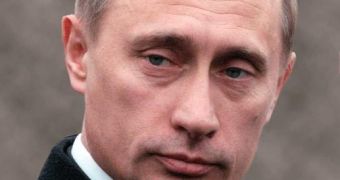This past Friday, 300 Muslims were detained by police officials in Moscow, Russia. Their arrest was ordered by President Vladimir Putin, who plans to round up as many radical Muslims as possible before this next year's Winter Olympics in Sochi.
The resort set to house 2014's Winter Olympics is located fairly close to provinces where Russia is fighting an Islamist insurgency, hence the President's ordering such crackdowns.
Vladimir Putin's main concern is that Islamist militants might constitute a threat to people attending and taking part in the Winter Olympics.
Information shared with the public by Radio Free Europe says that 170 of these 300 Muslims were foreigners, and that extremist literature was found in their possession.
According to The Inquisitr, the literature was confiscated and will most likely be used as evidence once police officials are done checking its content.
When taken into custody, the 300 Muslims were at a Muslim prayer room in Moscow.
For the time being, Russian authorities have not disclosed any information concerning the charges that these men are facing.
Since the beginning of 2013, two other such roundups of radical Muslims have been carried out by Russian authorities by order of President Vladimir Putin.
These previous two raids also targeted Muslim worship places.
When asked to comment on these arrests, the president reportedly said that, “Fight against corruption, crime and the insurgency has to be carried out harshly and consistently. The situation in the North Caucasus should be kept under particular control.”
“We must fight back hard against extremists who, under the banners of radicalism, nationalism and separatism, are trying to split our society,” Vladimir Putin went on to explain, as cited by International Business Times.
Presently, some 23 million Muslims live within the borders of the Russian Federation. Most of them can be found in the northern regions of the Caucasus and in the republics of Chechnya, Ingushetia, and Dagestan.

 14 DAY TRIAL //
14 DAY TRIAL //